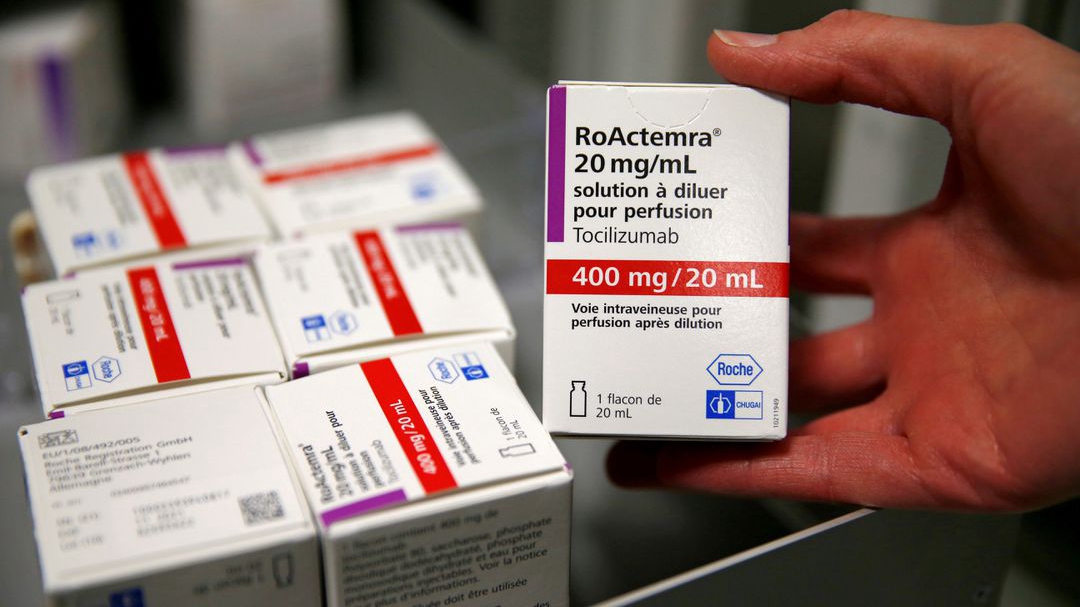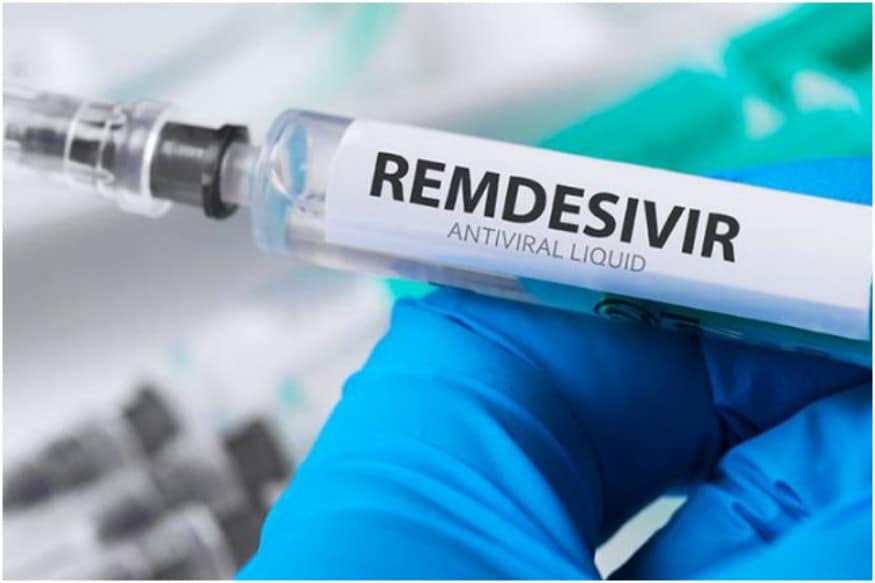How private hospitals and pharmacies are overcharging covid-19 patients?
Have you heard the name of a medicine called "Actemra Tocilizumab"?
This is an immunosuppressant (suppressing the immune system) that was recommended by WHO to be used for the critical patient of Covid-19. When covid patients are having trouble breathing despite using a ventilator, this medicine has been proven to relieve them and aid them in their healing. And in present conditions, this medicine is in high demand. But despite the necessity and effectiveness, the price for this medicine is exorbitant; unaffordable for poor families.
Do you know how much a single dose of this medicine cost? Any private hospital would charge you around NRs.150,000 to 200,000 for the single dose(20 ml). And any patient would require about 3 doses of this medicine. That would make this medicine worth NRs 600,000 for a single patient. The hospital itself charges hefty prices for its normal services and after the patients use this medicine, their hospital bills escalate to unaffordable amounts. This tangles the family with crippling debt and even pushes some families to poverty.
When my grandfather got infected from covid, he reached the ventilator in a matter of few days and his conditions weren’t improving. Doctors suggested giving him the injection, but he warned us that the success rate is only 50% for someone as old as him. Even though the injection cost was huge and the success rate low, we had to take the chance.
So we paid the amount and the hospital provided us with the injection. After the dose was given, our grandpa showed some sign of relief. And there was some hope for his survival. But unfortunately, our grandpa soon died of heart failure. Even after that, the hospital was demanding full payment from us or else they won't give us the dead body. With a heart full of disappointment and agony, we paid that huge sum and proceed with the death rituals.
Then later we found that the Actemra Tocilizumab could be bought with only Rs. 60,000 in other pharmacies ( about a third of what we paid). This made us frustrated but all we could do was blame our luck and forget the incident. We were even lucky to have paid that much. Because there are families who had to pay 10 lakh for that single dose. They had to suffer a worse fate than us.
Relatives are ready to pay any amount demanded by hospitals and pharmacies to save the lives of their loved ones. Some people are taking undue advantage of their desperation. What is concerning is that the regulatory bodies are helping such people, not the victims. Not only in Nepal but such practices were common in India as well. Due to a shortage of Actemra in the hospital and pharmacies, people were forced to buy this from the black market which charged them even greater prices.
If the hospital overcharges the cost for such critical medicine, we can only imagine how they have charged us for normal medicines. After our stay at the hospital, my family realized that the price of any surgical instruments we bought from the hospital was exorbitant than that in outside pharmacies.
Tocilizumab wasn't the only expensive covid-19 medicine to be overpriced. Remdesivir, a critical antiviral drug for covid-19, costing just Rs 5,600 is being sold for more than Rs 40,000.
Moreover, all covid safety gears for the hospital staff have to be paid by the patient even if they didn't test covid positive. When a health professional was questioned about this his answer was very reasonable,"We have to send our staff to quarantine every 48 hours. We have to treat them free of charge if our staff and their family members get infected and give them the salary while staying in quarantine. We need hundreds of personal protective equipment daily. We have to recover those costs from the patients." But those same hospital charges NRs. 7000 for a PPE which actually costs around NRs 3000. Even though their reasons for forcing the patients to buy their protection gears were valid, they are making a huge profit off of it as well.
The government has set the highest price for the hospital beds at Rs 2,000, Rs 3,500 and Rs 7,500 for people suffering from normal, medium and severe cases of Covid-19 respectively, but private hospitals that have been charging as much as Rs 50,000 for a hospital bed per day from a patient.
To make sure that they do not suffer legal consequences in the future, patients are also made to sign an agreement that states despite government hospitals treating patients for free, the hospital would not be doing so. Both the patient and their relatives have to sign the form.
Such overpricing of the medicines and hospital services reveal that they are the leaders in the black marketing of medicine in Nepal. And this market was thriving in Nepal long before the covid crisis. The black market for medicines makes approximately Rs 30 billion a year just in Nepal, of which Rs 1 billion is from blood pressure and diabetic patients alone. The prevalence of this market is mainly due to ignorance of regulatory bodies and corrupt officers in them. Even if an individual patient points out this unfair scheme, these regulatory bodies refuse to take action.
There also have been many cases where hospitals overcharge patients and do not discharge them until they pay up. When Chandra Bahadur Tamang, a worker at Sasa Hydropower in Dolakha injured himself while digging up a tunnel, he was taken to a private hospital. His hospital treatment bills reached NRs 10 lakh and his contractor abandoned him. As he could not pay his medical bills, the hospital kept him there for two weeks after his treatment and was only released after news of him being kept hostage broke out. Then the hydropower company finally stepped up and paid the bills. This is the grim reality that we are living in.
But shouldn't it be obvious that Private hospitals are always expensive? Who has told the patient to seek services in private hospitals? There are cheaper government hospitals as well. Why don't they go there for treatment?
Well, the majority of people prefer to visit government hospitals but since there is only one government hospital per district, it can't accommodate all those patients. Those who get admitted there have to stand in long lines, fill more paperwork, get slow or even ineffective services. Since doctors and health workers are limited, it is obvious that quality services aren’t possible for such quantities of patients. Government hospitals can't provide all necessary treatment to the patients as well. So forcefully, people have to take the alternative and visit a private hospital.
The National health insurance policy initiated by the Nepal government seems promising because it guarantees the funds up to 1 lakh of medical bills. Though this doesn't cover all types of health services, with this people can receive basic health care for free.
Yet again, this policy is met with several challenges mentioned above. The number of people seeking free health care is substantial while the number of health workers is limited. So people have to stand in long lines, wait long hours, fill out more paperwork, visit selected doctors and buy only Nepali medicines. The health sector is such a field where delayed services are unacceptable. So people seeking fast, reliable and quality services will rush to private sectors.
It is acceptable for a private hospital to be more expensive than government ones but it shouldn't be a hundredfold more. The hospital here is more concerned about earning a profit than improving their customers’ health. They charge unfair prices and patients have to bear the burden. And due to the negligence of regulatory bodies, their crime goes unrestrained.
Any business in the medical sector is considered highly profitable, so many people enter this field despite having zero knowledge about medicines. Unlicensed medicine stores have been operating rampantly across the country and many of the licensed ones are operating without trained pharmacists. There are even cases where patients have been sold expired medicines which exacerbated their condition or even killed them. The reason why many people taking the risks to open up an illegitimate pharmacy is that this business is highly profitable and those caught can bribe out of jail.
To be more specific, here are 3 ways, how pharmacies can gain profit:
1. 16 % profit on drugs plus black marketing of critical medicines.
2. Bonus drugs from Pharmaceutical companies are sold at full prices.
3. Surgical items sold with any profit margin.
Not all pharmacies are illegitimate though. Many are operating by following all rules and guidelines set out by the government.
The problem of expensive health care isn't unique to Nepal. Medical bills are reported to be the number one cause of bankruptcies in countries like the US. But the US isn't an optimal example of what the health care system should really be like. Other countries like France, UK, South Korea, Canada, Japan have far surpassed the US in the health sector. It might sound absurd but more money doesn't always equal better health care. The best example of this statement is the US itself. It spends more GDP and more dollars per capita than any country in the world, yet its quality of health care system is far behind other countries.
Nepal can also make an effort to implement the kind of health care system France and South Korea are following. Keeping in mind that Nepal is a poor underdeveloping country, we don't need to wait for our GDP to grow to that of South Korea or France. We can implement only those policies what is optimum for Nepal, like Standardizing the private health care system, regulating prices, taking strict action against fake medical stores, blocking black marketing and so on.
However, these reforms are easier said than done; it requires extensive surveys, clever management and thoughtful application. And for a country like Nepal, such implementation seems far-fetched considering the ongoing political drama of ministers. Government just doesn't have time to take care of its citizens and listen to their issues. Most government leaders are busy strengthening their powers, pockets and parties. So it might take decades or more for the government to be stable and bring any reformation to our health care system.
If you also have your experience with high priced hospital services, you can share it in the comment.







Comments
Post a Comment
So, how do you like my blogs so far?